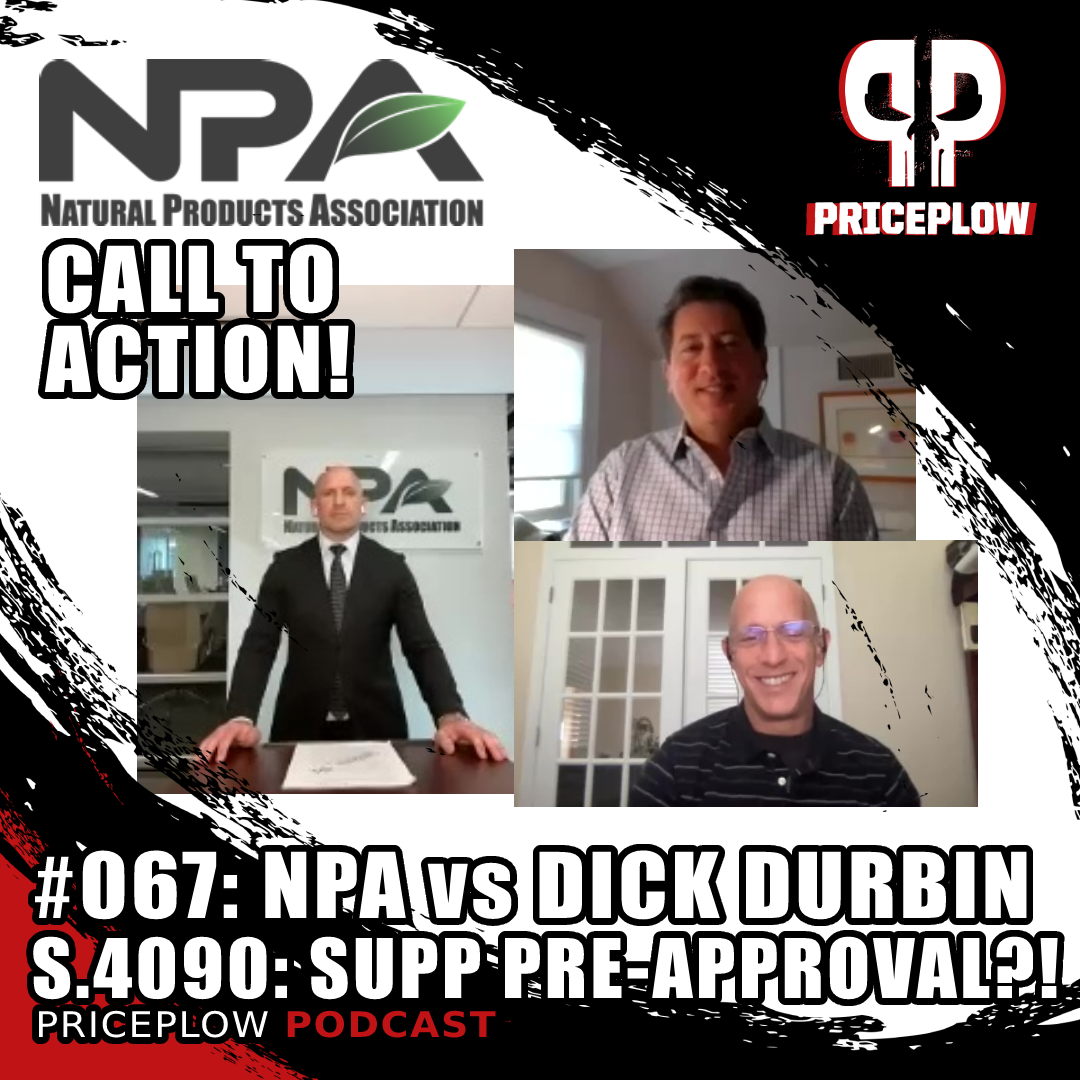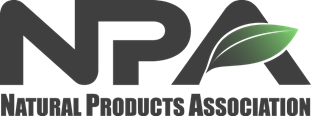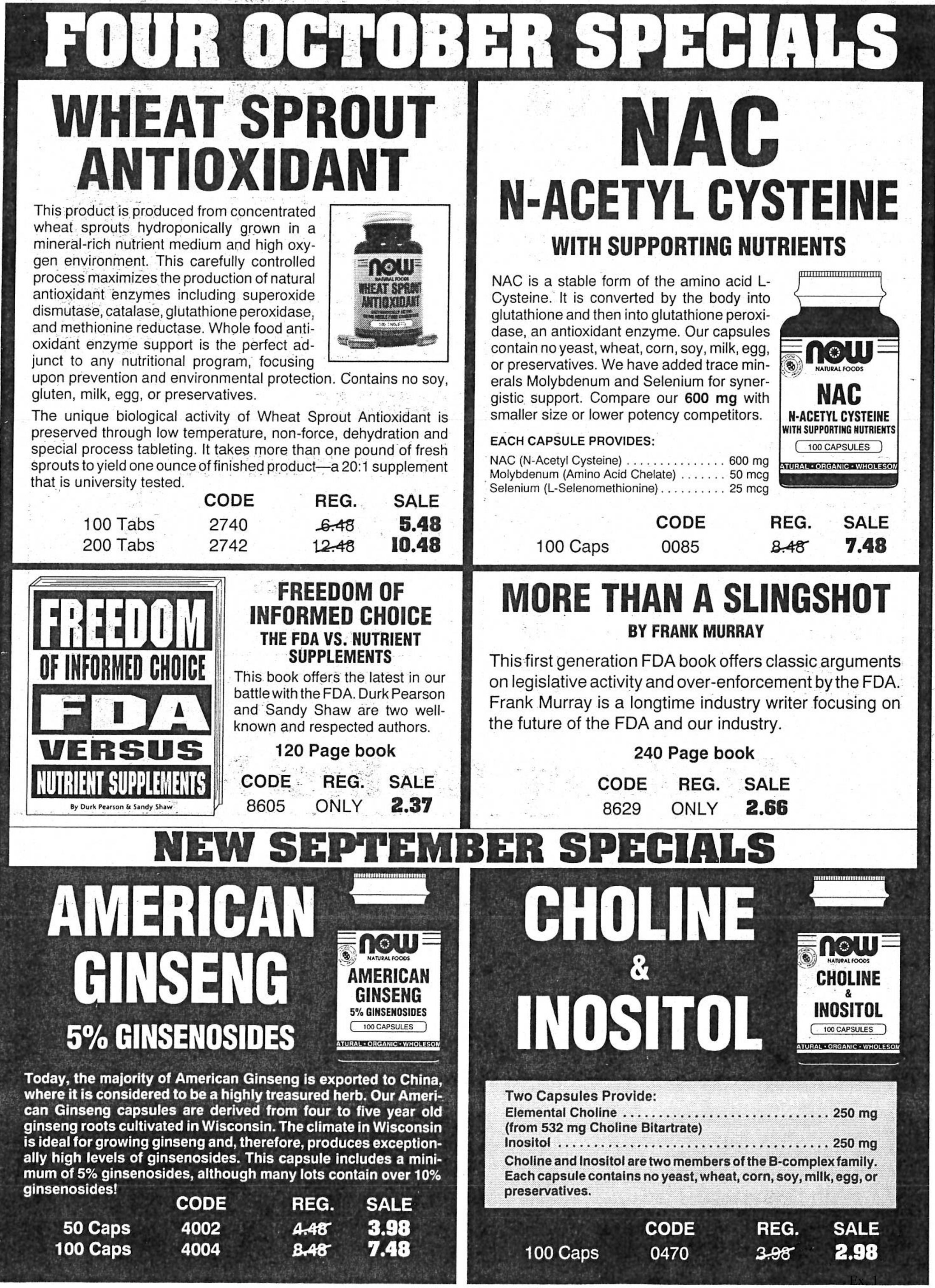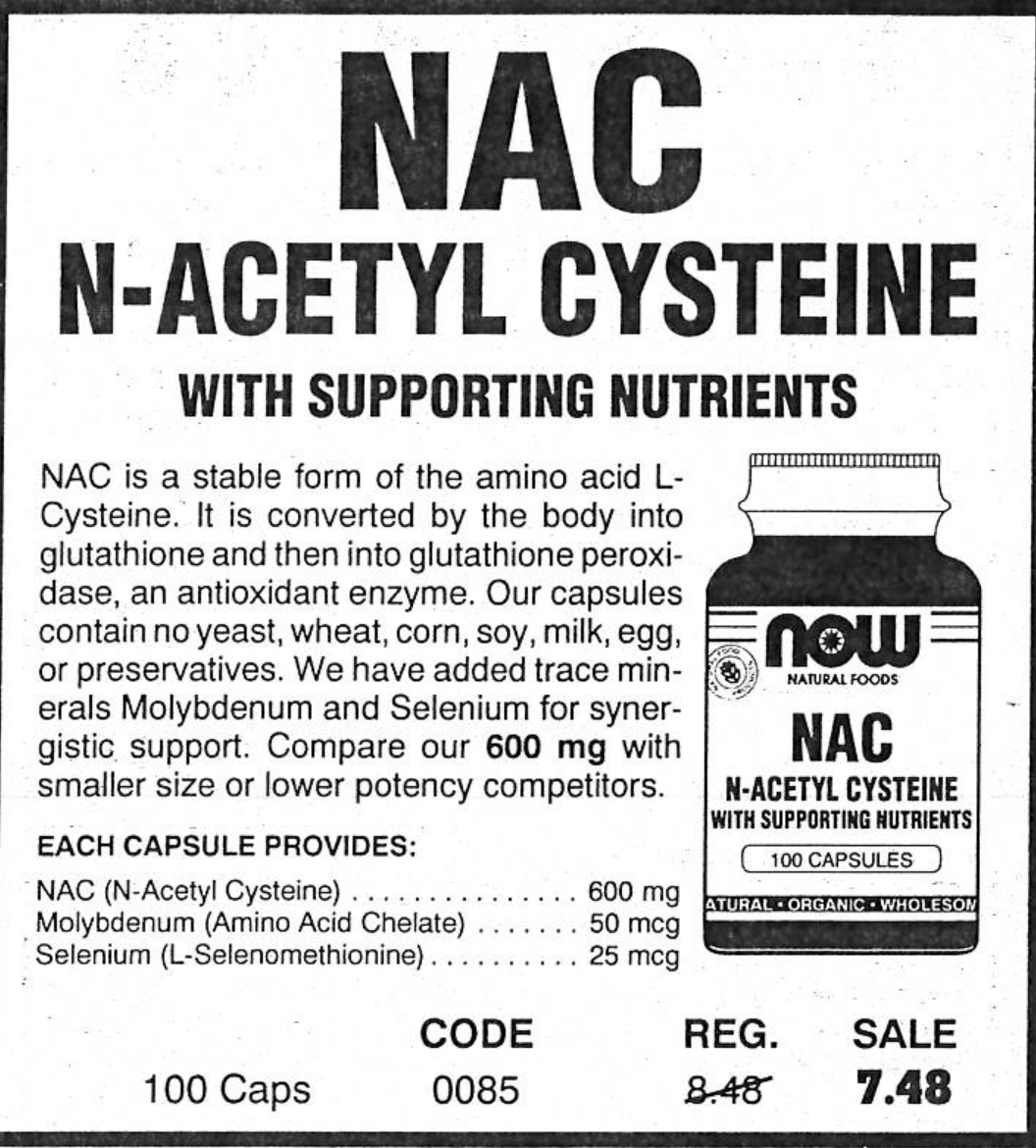https://blog.priceplow.com/podcast/npa-vs-dick-durbin-s4090

A bill (S.4090) introduced by Senator Dick Durbin would require PRE-APPROVAL from the FDA for all dietary supplements. Led by Dan Fabricant, Joe Weiss, and Doug Kalman, The Natural Products Association (NPA) is fighting back.
On April 26, Senators Dick Durbin (IL) and Mike Braun (IN) proposed a bill titled Dietary Supplement Listing Act of 2022,[1,2] which would have serious ramifications on the way business and commerce is done in the dietary supplement industry.
We invited a powerhouse team of industry veterans and experts to discuss what this bill would mean for the industry:
- Daniel Fabricant, Ph.D - CEO/President of the Natural Products Association (NPA)
- Joe Weiss - President of branded ingredient developer Nutrition21 and NPA Board Member
- Doug Kalman, Ph.D - Senior Vice President of Scientific and Regulatory Affairs for The Natural Products Association
All Dietary Supplements would now need FDA pre-approval?
The discussion centers around the text of the bill, and how its subtle wording would effectively create a situation where supplement manufacturers would require pre-market approval in order to enter the marketplace, otherwise they'd be deemed misbranded and subject to legal action.
Quick links before listening
- Read the bill's text - https://www.congress.gov/bill/117th-congress/senate-bill/4090/text
- Compose a message to your representatives - https://www.votervoice.net/NPA/Campaigns/94238/Respond
Video: PricePlow Invites the NPA to Discuss Dick Durbin's S.4090
Audio Version
Podcast: Play in new window | Download (Duration: 51:08 — 43.7MB)
Subscribe to the PricePlow Podcast on Your Favorite Service (RSS)
Detailed Show Notes

The Natural Products Association is the leading trade association for dietary supplements, known for its strong lobbying presence in Washington D.C. It acts as an industry watchdog on regulatory and legislative issues.
-
0:00 - Introduction to the situation
-
0:40 - Guest introductions
-
3:30 - Dan Fabricant's opening statement:
This is a listing bill, and in many ways, the agency already has the information this bill would mandate.
Signed in 1994, DSHEA is the prevailing law of the land for the dietary supplement industry.[3] It was designed to give consumers access but with consumer protection, and it's done a great job of balancing those two. It's one of the safest commodities the FDA regulates, if not the safest.
This bill would restrict access and restrict the industry's size, while limiting consumer choices.
A listing authority "This is designed to give FDA a listing authority, where they're going to tell you basically what you can and cannot set your shelf with. That's a problem on a number of levels."
-
4:35 - Pre-Market Approval
What we're really concerned about is the pre-approval aspect of this bill.
"This is effectively pre-market approval for supplements... we don't have pre-market approval for orange juice or chocolate chip cookies or calcium in milk... so this is really odd".
-
5:00 - NDI (New Dietary Ingredient)
Dan explains how new dietary ingredients are brought to market through the NDI process.[4,5]
But with this bill, if you are using old dietary ingredients in the market, and merely change the flavor, you need permission from the government to go to market?! You have to make the list to go to market?! Seems very excessive.
-
6:15 - The bill's vagaries:
The crux of the issue: combining two critical parts of the bill
Dan reads a couple parts of the bill's text:
"...commercial distribution which has not been included in any listing previously submitted by the responsible person to the Secretary under this section shall be submitted to the Secretary prior to introducing the dietary supplement into interstate commerce."[2]
Seems benign enough, just give them a listing. But wait, there's more - look how it can become misbranding, and this is where the words get interesting:
"(b) Misbranding.—Section 403 of the Federal Food, Drug, and Cosmetic Act (21 U.S.C. 343) is amended by adding at the end the following:
"(z) If it is a dietary supplement for which a responsible person is required to file a listing under section 403D and such responsible person has not made a listing with respect to such dietary supplement."."[2]
(emphasis ours)
The key words are made a listing. Just because you sent your notification to the FDA doesn't mean you made the listing. If you're not on the list, you're misbranded!
It's not the filing. It's about actually making the list.
It's already illegal to introduce a misbranded food or dietary supplement into commerce, per the Food Drug & Cosmetic Act.[6] This is a strict liability misdemeanor criminal statute - this has real consequences. CEOs don't want to risk criminal misdemeanors.
-
7:45 - There are no specifics and no protection for what gets on the list.
-
7:50 - FDA's recent activity
Dan brings up recent FDA activity, like their illegitimate attack on NAC using technicalities (which NPA had to sue FDA over, demonstrating that it was legally compliant[7,8]) and not safety (NAC is extraordinarily safe and effective[9-11]).
Similarly with CBD, there's been no actual safety argument from the FDA, but they're still claiming it's not a dietary supplement ingredient. There's no clarity.
-
9:20 - Joe Weiss talks about the consumer-facing side
Joe's company (Nutrition21) invests substantial amounts of money developing novel ingredients, so that brands can bring amazing, novel products to consumers.
Nutrition21 does the safety work, the toxicology work, the regulatory work, running clinical studies, confirming efficacy, etc.
But what if a brand formulates a novel ingredient into a product, they send their information in, and the FDA doesn't want it listed? This product is now misbranded and doesn't make it to the store shelves, and the brand is stuck.
There's additionally no recourse in this bill.
This stifles innovation - the brands would all become too conservative.
-
11:30 - There's precedence for FDA malfeasance
This advertisement from 1993 is proof that NAC was sold as a dietary supplement before 1994,[8] and should be a legal dietary supplement ingredient.[7] Why did FDA go after it all of the sudden in 2020 of all years, and can we trust them with future decisions?
Referring back to the NAC issue, Joe explains that NAC was sold for decades with pristine safety. Yet in 2020 of all years, the FDA decided to put out a guidance that said they didn't consider it to be a dietary supplement anymore.
"If it can happen to NAC, it can happen to any ingredient".
When you give them pre-market approval power, it turns the existing regulation on its head, it hurts the consumer, and it stifles innovation.
-
12:20 - The bill is sneakily-worded
Mike explains that the bill never outright says pre-approval, but if you combine the sections quoted above at the 6:15 marker in this podcast, you can see how it actually operates.
-
12:50 - Commerce in America
Mike comments that this isn't how commerce is done in America. Are there any other industries out there that require state approval to enter commerce, aside from drugs?
Dan even points out that not even all medical devices require this kind of acceptance - and supplements can't even remotely make the kinds of claims that medical devices do!
-
13:45 - Supplements aren't pharmaceuticals
Dan: Dietary supplements aren't here to treat, cure, or mitigate disease.
"I don't see the value of... vitamin C chewables have been out there for 28 years, and you're going to change the flavor, and now you better get a hall pass from FDA before going to market? That just seems way too excessive"
-
14:05 - Tianeptine?! Dick Durbin's presentation of this bill
When Dick Durbin presented this bill to the senate, he used a drug compound named tianeptine as his example.[1] Sometimes known as "gas station heroin", this chemical isn't a legal dietary supplement in the first place!
Would this bill solve any of the problems Dick is talking about?
Dan: "The short answer is no, no way, no how". FDA had information on this for nine months and didn't take action. Drug traffickers aren't going to list their drugs with the FDA!
The FDA still has to take enforcement action. They're not getting out there, so why give them more power if they're not doing their current jobs?
-
16:55 - This bill does not enhance or improve consumer safety
Joe: The lack of tianeptine enforcement shows that this bill would not improve consumer safety, and would only punish law-abiding companies, while bogging FDA down with more work.
Companies outside of the system aren't sending their contact information to FDA in the first place.
FDA needs to get more aggressive on enforcing the existing law, which they've done a poor job of doing.
-
18:40 - FDA correct action?
Ben: Is this a lack of manpower?
Dan: It's a lack of willpower. Regulatory agencies always ask for more money, fire up the money printing presses again! But there has to be interest in attacking problems.
The recent budget request is effectively stating, "The industry is too large, we need more money to get our hands around it". Yet the FDA doesn't even know how many notices they receive.
They need to do police work, but instead seem to want to restrict the size and growth of the industry because it makes them uncomfortable.
-
20:30 - Joe discusses how DSHEA 1994 affected the industry
DSHEA 1994 was passed to define and regulate the industry, which then allowed professional investment into it. The industry grew, as was expected from this type of bill.
Just because the industry grew (the expected outcome) doesn't mean the law needs to change. Law doesn't change based upon industry size. But in terms of actual enforcement, FDA's been asleep at the switch!
Why would a new law be any better? They still can't enforce the existing law, which is quite comprehensive and covers good manufacturing practices, tackles adverse event reporting, etc.
"The arguments are weak and when you shine a light on them, they really don't hold up."
-
22:20 - What would you say to Dick Durbin? What's the NPA's negotiation line?
Dan: "Obviously, it's a bad bill. We'd be a really lousy association if we're advocating to make a bad bill better." If it's really about labels, then first realize that the agency can already conduct audits and collect labels and samples. What are they doing with those labels?
So why not just tack it into a previously existing authority as a notification?
-
24:20 - Opening the door for frivolous lawsuits
Unlike Food Facility Registrations, this bill has a public disclosure mechanism. Dan argues that this isn't for consumers, it's for the trial bar - meaning that trial lawyers can use it to find products on the market that aren't listed and sue companies who aren't perfectly on the list.
And it just so happens that Dick Durbin receives tons of campaign contributions from... trial law firms![12]
There are no protections for good companies in this bill.
-
24:50 - Senator Durbin and the Supplement Industry
Back to Mike's question about how to deal with Senator Durbin,
Dan: "Senator Durbin has been after this industry for a while, he introduced something similar in 2013".[13] The late Senator Hatch and Senator Harkin shut it down.
Dan: "We're a long way away from negotiating. It's time to batten down the hatches and say NO." 80% of consumers currently use supplements, showing extreme confidence in the industry.
-
27:15 - The bill's aim
Dan explains that the bill is here to restrict industry growth. As Joe said, it doesn't do anything for consumer safety!
But if you want to discuss DSHEA reform, NPA is open to some updates. "Let's not just go hey, we're going to swipe at your leg and hope you tip over" Oddly enough, it would go under the pharmaceutical user fee authorization, which is for medical products!
-
28:00 - The listing of retailers?!
This bill requires brands to list where it will be sold, a completely impossible task!
"(D) The full business name and address of all locations at which the responsible person manufactures, packages, labels, or holds the dietary supplement.[2]"
(emphasis ours)
This is literally impossible to do, especially as a pre-market notification. These are the technicalities that are there for trial lawyers -- again, see Senator Durbin's contributors.
-
29:45 - New flavors require pre-market registration!
Dan points out the following line:
"(A) Any proprietary name of the dietary supplement and the statement of identity, including brand name and specified flavors, if applicable."[2]
(emphasis ours)
"So again, if you have a new flavor, before going to market, you've gotta notify them? Not just notify them, but get permission to go to market? Even if it's old ingredients? What's the value in that?"
-
31:15 - Opens the door for politicization
Mike makes the point that someone at the FDA can pick and choose what makes the list, and certain brands may be discriminated against for reasons unknown. Merica Labz is used as an example, given the wave of anti-patriotism ironically found throughout the state.
Printed in 1993, this advertisement is proof that NAC is an "old dietary ingredient", and the FDA's attack on it in 2020 indicates a pattern of recklessness and politicization
Dan agrees, and gets back to the NAC example with regards to discriminatory behavior from the FDA - and they still don't have a full reversal, just a guidance document on enforcement discretion. "It's like hey, we're going to pick you up off of a shaky ground and put you on a shakier ground!"
-
34:00 - The manpower required for this
Joe explains, "If you take this to its logical conclusion, it gives us the reverse of what we want. We want consumer safety to be first and foremost, we want dangerous products taken off the market. Now you have tons of resources dedicated to managing this product listing... which does nothing to help consumer safety. You take the limited resources they have and put it in the wrong direction."
-
35:00 - FDA's facility inspections are down!
Joe also points out that FDA inspections have gone down dramatically.
Dan agrees, stating that roughly 600 inspections in 2019 (actually down from a high of ~800), to now hovering around 250-300.
"We want FDA inspecting facilities! That's what we want. If they do nothing else, the best thing FDA does is inspect and test, and this is a total diversion away from that."
-
37:00 - Potential FDA improvements and comparisons to the food industry
With the Bill discussed, Ben asks how FDA can do better.
Dan argues that the legal structure works, but do we have accountability and transparency from the FDA? They know where to find issues, anyone has Google or can walk into gas stations. Dan also argues for some added IP protection.
Joe argues wants more focus on consumer safety, and argues that they're doing even worse for food safety!
As a sidebar regarding food safety, Mike states that he can get third-party lab tests on more supplements (such as NutraBio and Revive MD) than he can with foods. We don't even know if our olive oil is olive oil,[14-16] and the same goes for avocado oil![17] The supplement industry actually does this better than the food industry!!
Mike's comments for FDA improvements - There's no point in playing "whack-a-mole" with small, insignificant brands. FDA should go after the manufacturers who are producing illegal supplements with non-compliant ingredients. Brands will come and go, they need to get to a bigger root of the problem, and that's at the manufacturing level.
-
42:30 - Many companies are more brazen these days
Ben makes a point that a decade ago, criminal companies were spiking amphetamines into products, but not putting it in on the label.[18,19]
These days, it's more brazen -- go into a store and you'll see the illegal drug-like compounds right there on the label. These small companies and stores don't fear FDA enforcement because FDA isn't enforcing!
Getting back to the contract manufacturers, Ben explains that if you see one law being broken, you can only imagine other corners are getting cut by the manufacturer. Doug also adds that much of it is done overseas. Are those audited?
-
45:00 - Giving FDA ability to remove existing products through this bill
Doug gets back to the bill, talking about products that are currently on the market. The bill, as written, states that brands with existing products would have 18 months plus 60 days to get their products listed. At that point, it gives the FDA the ability to remove established products from the market!
Doug adds that it's duplicitous, and even Pieter Cohen, a well-known industry critic, states that this is not protective of public health and is against the bill.[20]
DSHEA 1994 already covers much of this bill's intent!
-
48:00 - Take Action
Dan explains that you should call your senator's office, call Dick Durbin's office, and to head to NPA's Website and clicking "Take Action" to see the Voter Voice link below.
Take Action!
If you're against this bill, then see NPA's Voter Voice page and compose a message to your representatives:
Stay up-to-date with PricePlow
Want to keep abreast of our future updates on this bill? More content is coming, so sign up for our "Dick Durbin" alerts and you'll get notified of future articles, videos, and posts:








